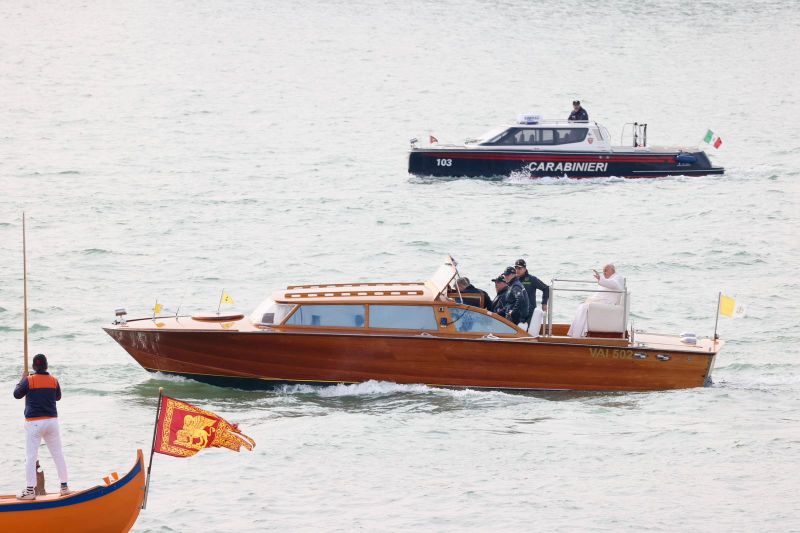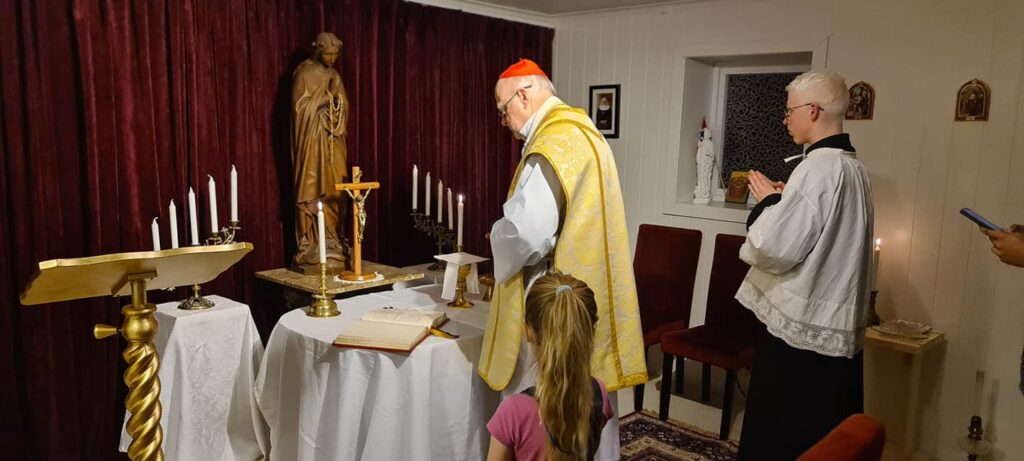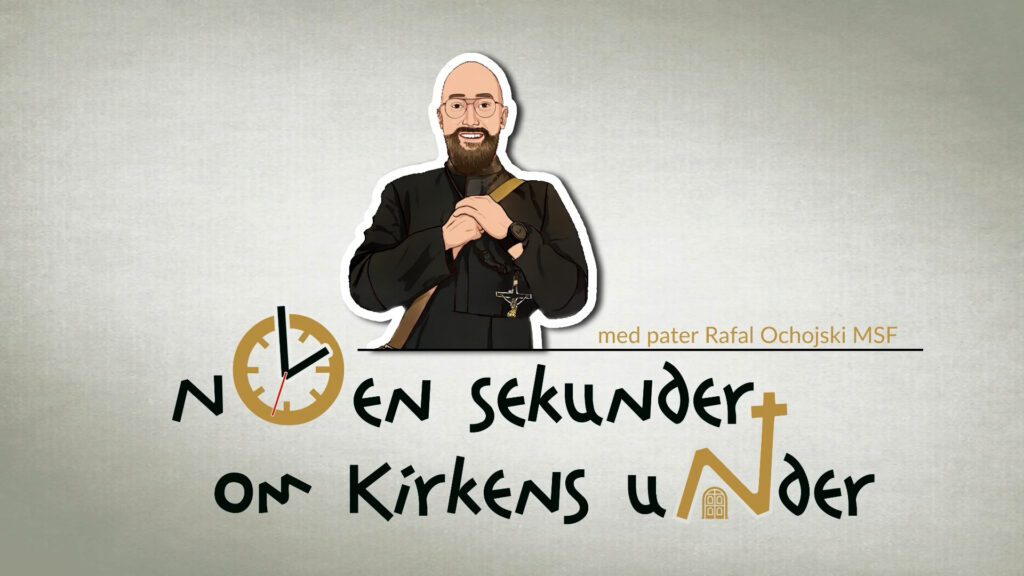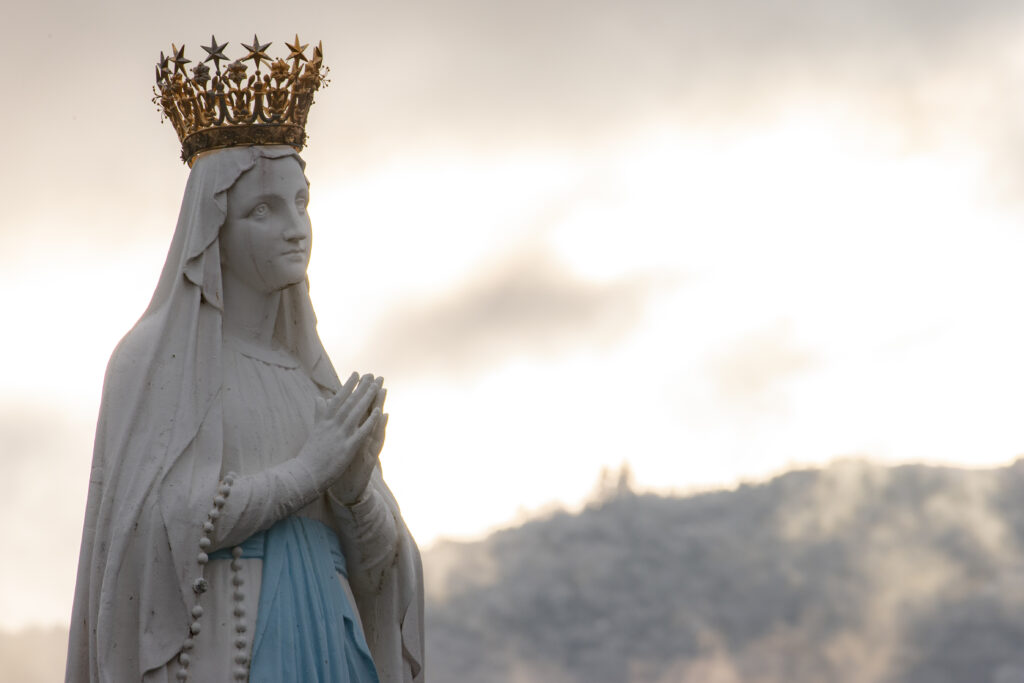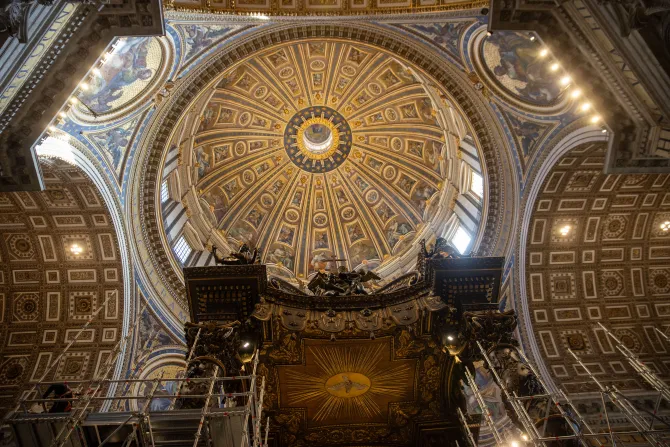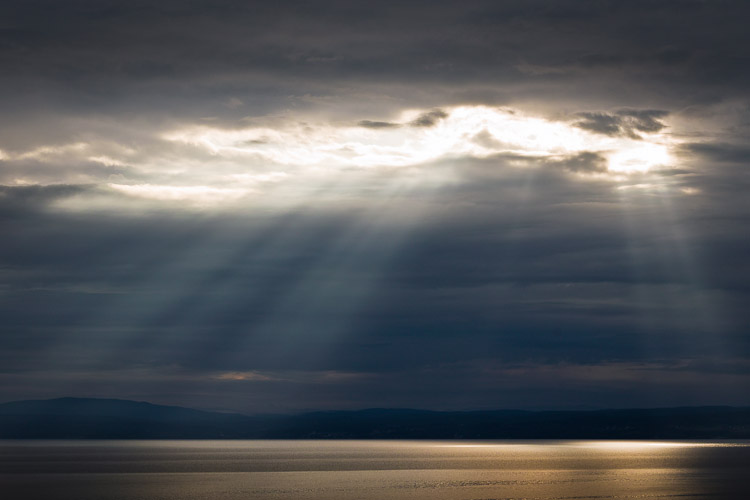Rome Newsroom, Apr 28, 2024 / 08:00 am (CNA).
Pope Francis opened his one-day visit to Venice on Sunday morning with a meeting with female inmates where he reaffirmed the importance of fraternity and human dignity, noting that prison can be a place of new beginnings.
“A stay in prison can mark the beginning of something new, through the rediscovery of the unsuspected beauty in us and in others, as symbolized by the artistic event you are hosting and the project to which you actively contribute,” the pope said to the female inmates gathered in the intimate courtyard of the Women’s Prison on the Island of Giudecca.
Pope Francis left the Vatican by helicopter at approximately 6:30 in the morning, arriving in the Floating City by 8 a.m. The pope’s visit, albeit short, holds a deep meaning as Francis is the first pontiff to visit the prestigious Venice Biennale art exhibition, which is marking its 60th iteration. As part of the exhibition the Holy See has erected a pavilion at the women’s prison titled “With my eyes.” The pope also spoke with artists while he visited the pavilion.
Pope Francis meets with female inmates gathered in the intimate courtyard of the Women’s Prison on the Island of Giudecca in Venice, Italy, on April 28, 2024. Credit: Vatican Media
Taking a center seat in the intimate courtyard of the 16th-century former convent, the pope opened his address by saying that he wanted it to be thought not as an “official visit” but an “encounter” centered on “prayer, closeness and fraternal affection.”
“No one should take away people’s dignity,” Pope Francis said to the inmates, volunteers, and staff, joined by the Patriarch of Venice, Archbishop Francesco Moraglia.
Drawing attention to the “harsh reality” of prison, the pope highlighted some of the problems inmates are confronted with “such as overcrowding, the lack of facilities and resources, and episodes of violence, [which] give rise to a great deal of suffering there.”
But Francis, anchoring his message on hope and mercy, implored the women to “always look at the horizon, always look to the future, with hope.”
The pope continued by noting that prison can also be a place of “moral and material rebirth where the dignity of women and men is not ‘placed in isolation’ but promoted through mutual respect and the nurturing of talents and abilities, perhaps dormant or imprisoned by the vicissitudes of life, but which can re-emerge for the good of all and which deserve attention and trust.”
Pope Francis blesses a woman during his encounter with female inmates gathered in the courtyard of the Women’s Prison on the Island of Giudecca near Venice, Italy, on April 28, 2024. Credit: Vatican Media
Pope Francis stressed that it is “fundamental” that prisons offer inmates “the tools and room for human, spiritual, cultural and professional growth, creating the conditions for their healthy reintegration. Not to ‘isolate dignity,’ but to give new possibilities.”
“Let us not forget that we all have mistakes to be forgiven and wounds to heal and that we can all become the healed who bring healing, the forgiven who bring forgiveness, the reborn who bring rebirth,” the pope added.
At the end of the encounter there was a light-hearted exchange, when the pope, after asking the inmates to pray for him — who responded in unison “Of course” —– quipped: “But in my favor, not against.”
At the end of the address, the pope presented an icon of the Blessed Virgin Mary as a gift to the inmates, saying: “Mary has tenderness with all of us, with all of us, she is the mother of tenderness.” In return the female inmates presented the pope with a basket of all-natural toiletries they make through a worker-training program.
Following the encounter with the inmates, the pope made his way to the prison’s chapel, where he spoke to the artists, imploring them to use their craft to envision a world based on fraternity where “no human being is considered a stranger.”
“Art has the status of a ‘city of refuge,’” the pope said to the artists, “a city that disobeys the regime of violence and discrimination in order to create forms of human belonging capable of recognizing, including, protecting and embracing everyone.”

